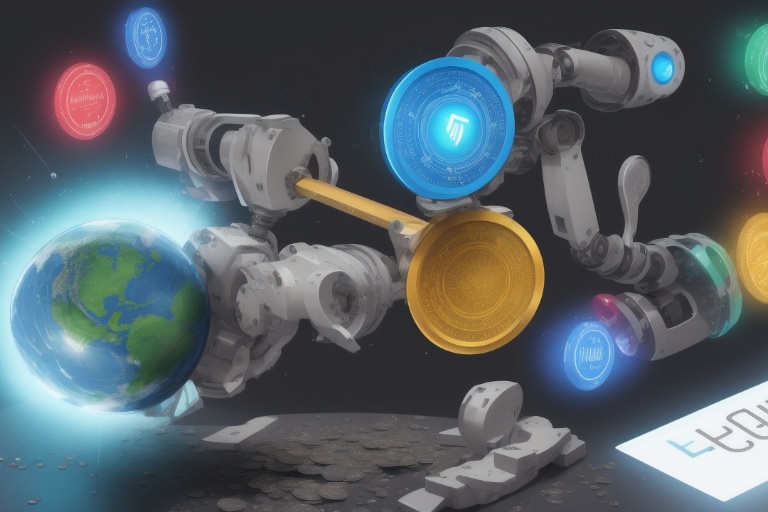The realm of Artificial Intelligence (AI) has transcended its nascent stages, where once it was a buzzword confined to the fringes of tech conventions and niche enthusiasts. It has now seamlessly woven itself into the very fabric of our daily lives, prompting a seismic shift in numerous industries. The influence of AI is palpable; from healthcare diagnostics to e-commerce recommendations, AI's reach is far and vast. Consequently, the allure of mastering AI technology has escalated, positioning AI engineering as a highly desirable and financially rewarding career choice.
The realm of Artificial Intelligence (AI) has transcended its nascent stages, where once it was a buzzword confined to the fringes of tech conventions and niche enthusiasts. It has now seamlessly woven itself into the very fabric of our daily lives, prompting a seismic shift in numerous industries. The influence of AI is palpable; from healthcare diagnostics to e-commerce recommendations, AI's reach is far and vast. Consequently, the allure of mastering AI technology has escalated, positioning AI engineering as a highly desirable and financially rewarding career choice.
The Ever-expanding Horizon of AI Engineering
The digital era is witnessing a significant surge in the demand for AI professionals. AI engineers are the architects and builders of our technological future, harnessing algorithms and neural networks to craft intelligent solutions. The need for such expertise has burgeoned, with top-tier companies across the globe vying for individuals who can navigate the complexities of AI and deliver innovation.
A bewildering array of roles fall under the AI engineering umbrella. From data scientists and machine learning engineers to research scientists and NLP (Natural Language Processing) experts, the spectrum is wide and opportunities are rife. These professionals are tasked with developing systems that can perceive, analyze, and learn from data in a way that mimics human thought and reasoning.
The domain of AI doesn't stand still; it's an ever-evolving landscape. As a result, professionals in the field must possess a robust set of skills encompassing computer science fundamentals, programming proficiency, statistical knowledge, and an innate understanding of machine learning concepts and algorithms.
Salary Trends and Job Opportunities
The financial incentives for AI professionals are compelling. In 2023, average salaries in AI engineering have soared well above the $100,000 mark. These figures reflect the high value the market places on individuals capable of navigating the intricacies of AI. However, the reward extends beyond monetary compensation. Being at the forefront of AI engineering allows professionals to participate in the bleeding-edge of technology, contributing to groundbreaking developments.
AI engineering's lucrative nature makes it an enviable career trajectory for anyone with a penchant for technology and a hunger for innovation. Opportunities aren't restricted to seasoned veterans; even those starting their journey in AI will find a landscape ripe for growth and advancement.
Skills for the Future
As technology propels forward, the skills required to excel in the realm of AI naturally evolve. Critical thinking, problem-solving, and adaptability are the bedrocks upon which technical expertise is built. In-depth knowledge of programming languages such as Python, R, and Java, alongside a mastery of machine learning libraries and frameworks, are indispensable.
Specialized skills in areas like deep learning, robotics, or computational linguistics can distinguish AI engineers in a competitive market. Staying abreast of current trends and emerging technologies is not just encouraged but necessary to maintain a leading edge in the industry.
The Future of AI Engineering
Looking ahead, AI engineering shows no signs of abating. Instead, it is poised for exponential growth. As AI continues to find new applications, the importance of AI engineers in shaping and guiding these developments becomes ever more pronounced. The AI landscape is a canvas of limitless potential, and AI engineers hold the brush.
The impending advancements promise to be both transformative and disruptive, setting the stage for more sophisticated AI capabilities. The fusion of AI with other revolutionary technologies like quantum computing and the Internet of Things (IoT) is set to unleash an unparalleled era of innovation.
For those inspired by the promise of AI, now is a propitious moment to embrace this field. With determination and the right skill set, a career in AI engineering offers not just a place in the workforce but a vanguard position in the march of progress.
AI engineering is at a defining juncture, with the synthesis of technology and human ingenuity creating an optimistic forecast for those in the sector. From AI-powered automation to predictive analytics, the contributions of AI engineers are fostering a smarter, more efficient world.
In anticipation of the myriad opportunities and advancements yet to come, we encourage current and aspiring AI professionals to invest in their career progression. It's an exciting time to be part of this dynamic field. Keep an eye out for the unfolding trends and embrace the learning journey— the future of AI engineering beckons.
Information for this article was gathered from the following source.




